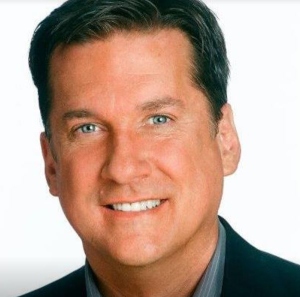
Kent Sterling was a talk show host for five years, and have managed for 15, including PD gigs at 1070 the Fan and WIBC in Indianapolis and 101 ESPN in St. Louis. After being downsized out less than a year ago, Sterling wrote a book called “Oops! The art of learning from mistakes and adventures.” He continues to host daily both video and audio podcasts. Sterling tells Radio Ink creators don’t need a radio station to create and share great content. “It helps but it isn’t absolutely necessary.” Here’s what he thinks about the future of the industry
I always dreamed of writing a book, so that was a very fulfilling project, and I enjoy the work creating content whether it’s a monologue or interview. We don’t need a radio station to create and share great content. It helps, but it isn’t absolutely necessary.
Radio Ink: What’s your impression of what’s happening in radio?
Sterling: Radio needs to see local hosts as investments, not expenses. Centralized management makes achieving revenue goals through sales related planning and execution very difficult. Corporate knows how to cut, but can they empower success through revenue generation? Recent cuts would suggest an unsettling comfort in cutting,
Radio Ink: Why do you believe bad local is better than strong national (see previous story)? Does the listener really care?
Sterling: Radio stations need to serve a community. It’s hard to do that when serving all communities. Indianapolis sports fans want to hear about the Colts, Pacers, Hoosiers and Butler Bulldogs. In May, they want news from the Indianapolis Motor Speedway. They have no interest in the Jets, Nets, and Mets. If left to networks to determine topics, they always service New York, Los Angeles, and to a lesser extent Chicago. You can see the success of local being more dynamic and profitable in markets like Chicago. Despite some cuts, radio is still mostly live and local there and it sounds like Chicago. There is also the issue of developing talent with an ever-shrinking talent pool. In Indianapolis, Dan Dakich and Michael Grady were both hired and put in a position to excel. Last night, I watched Purdue play Illinois on an ESPN network, and there was Dan Dakich telling me what was going on. Tonight, I’m watching St. Bonaventure play Dayton, and Michael Grady is calling the game for CBS. If local radio as we know it vanishes, so will the talent pool.
Radio Ink: Would you take a job in radio if it was offered? Why or why not?
Sterling: I LOVE radio. It’s the most intimate medium we have. All communication on radio is one-to-one. It can entertain, inform, enlighten, infuriate, and amuse. I enjoy both hosting and managing. Recognizing a little magic in others and cultivating it is about as much fun as I can have. Developing methods for increasing revenue so people don’t need to be fired every year is also rewarding. Hosting uses different creative muscles, but it’s a wonderful feeling to connect with an audience – to go the extra mile to validate listeners’ trust.
Radio Ink: What will the industry look like in 10 years?
Sterling: I think the giant companies will finally run out of people to downsize, and because they aren’t operators, they will sell to companies in smaller markets who make money face to face with their clients. They know how to hire young talent willing to work hard to learn the business. Those companies know how to run lean without compromising connections with listeners that generate results for clients. I hope it takes less than 10 years!
Reach Kent by e-mail at [email protected]
Follow Kent on Facebook HERE
Check out his website HERE





